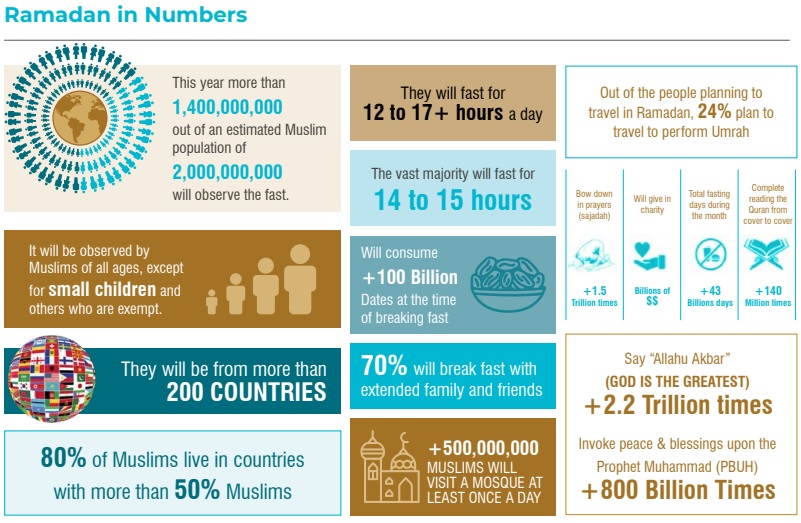
During Ramadan, it has been indicated that individuals go to mosques regularly. They also do shopping related to EID; their payments are primarily done in cash; they ensure that they give to charity as much as possible, and their meals are served in traditional cuisines. Also, as a tradition, they eat dates and drink water. During Ramadan, offers, especially prepared for EID, are made. Also, it is indicated that Muslims travel by UMRAH since sales are featured during Ramadan. Importantly, it is said that gatherings called IFTAAR take place, and the Quran is read. These are called "behaviour." In this article, the author attempts to synthesise the behaviour of Muslims during Ramadan.
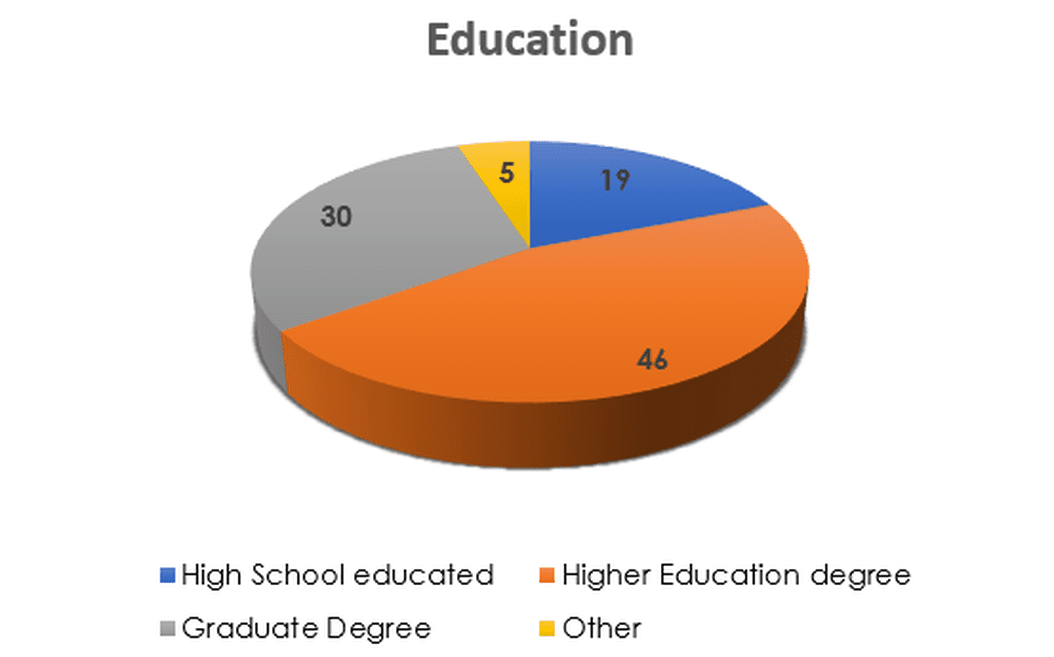
NB: Figures in percentage
The report indicated that 46 percent of the respondents had a university degree such as a Bachelor's or Honours, while one third of the respondents showed that they went beyond bachelor's degrees to masters and PhD. Only 19 percent of the respondents went to high school, with the remaining 5 percent belonging to other education levels.
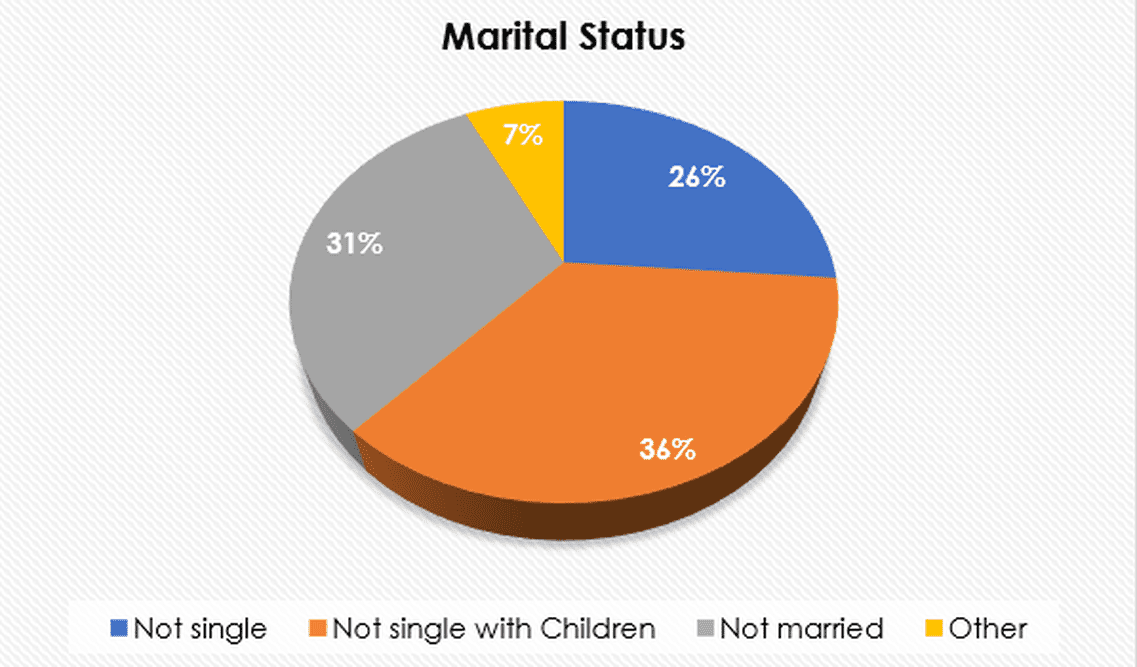
In terms of marital status, it was discovered that 26 percent of respondents were not single. Over one-third of them are not single and have children. The respondents that were not married were found to be 31 percent, with the remaining 7 percent belonging to other marital statuses.
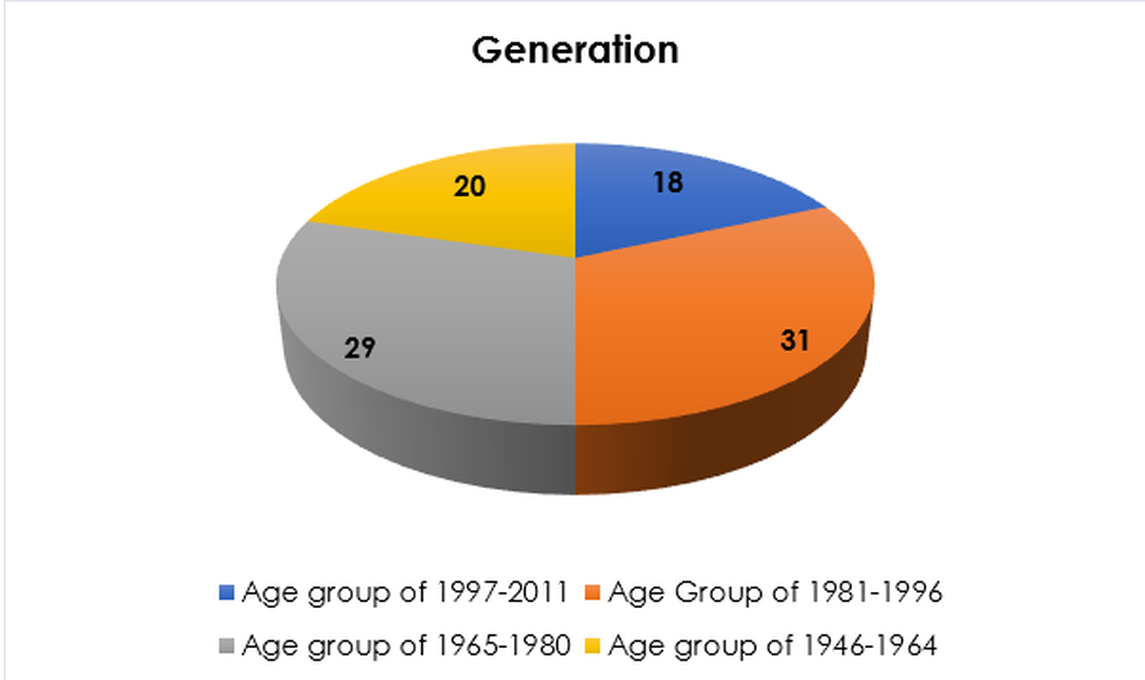
NB: Figures in percentage
It was found that 18 percent of the respondents who practiced Ramadan were born during the years 1997–2011 and 20 percent were born during the years 1946–1964. Over 30 percent of respondents were born between the years 1981-1996, and 29 percent of them were born between the years 1965-1980. With the majority of the participants born between the former and latter years, it can be said that Ramadan is widely practiced.
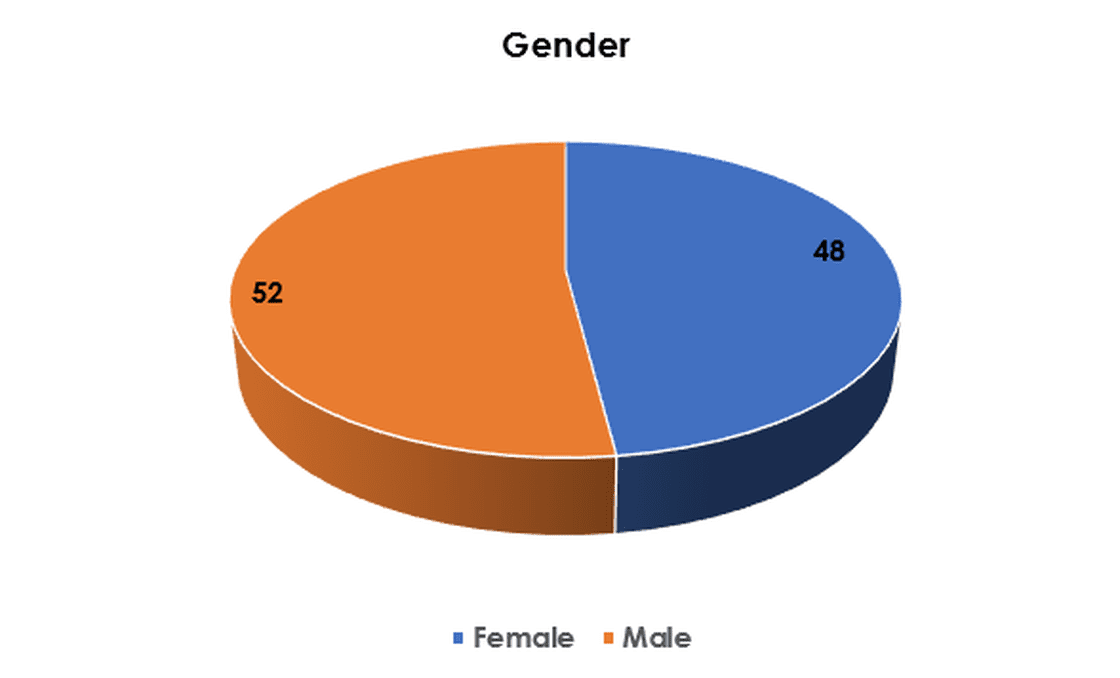
NB: Figures in percentage
It was also revealed that males made up the majority of survey respondents, accounting for more than two-quarters of the total, with females accounting for only 48 percent.
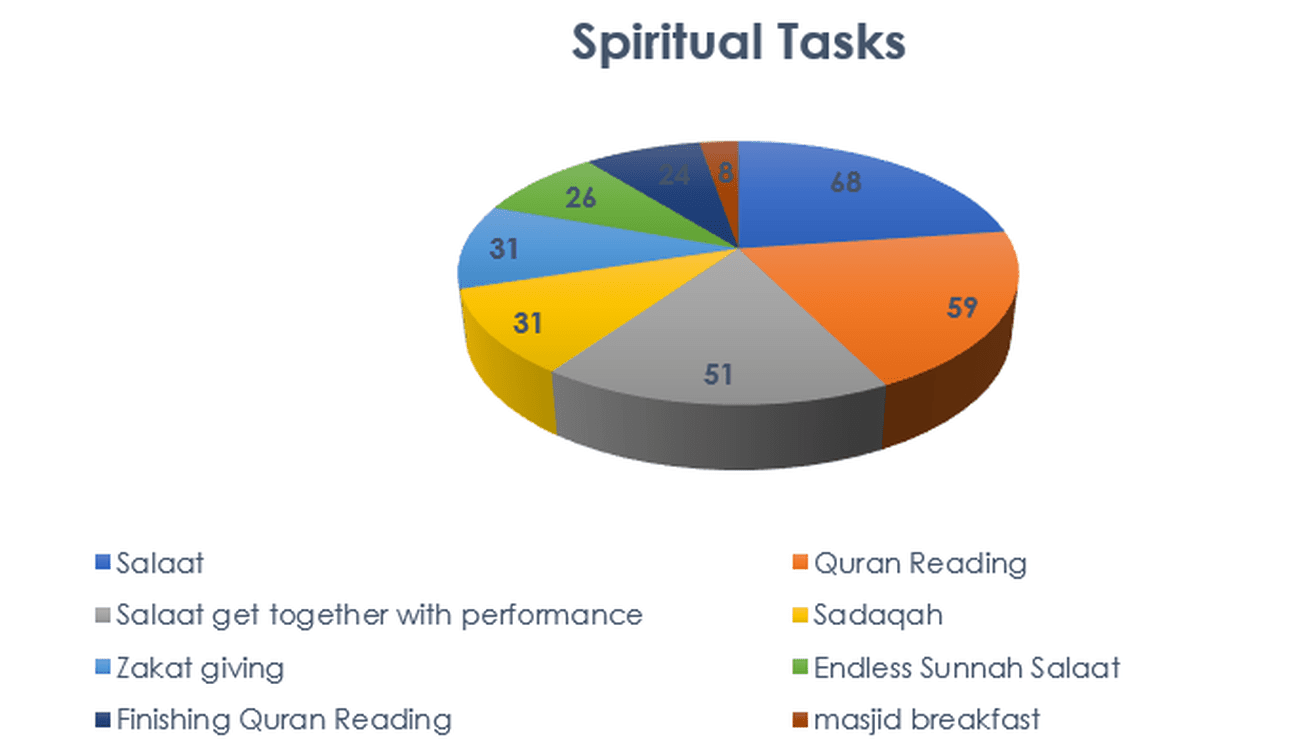
NB: Figures in percentage
It was found that over two-quarters of the respondents carried out the task of Salaat with good performance during Ramadan. This would be a good spiritual task for those that appreciate performance. Salat alone accounted for 68 percent of the Ramadan tasks completed by respondents. Interestingly, almost two-thirds of respondents responded that they read the Quaran during Ramadan. This can be related to the fact that most respondents have gone beyond the level of a bachelor’s degree for their education, which means that they like reading.
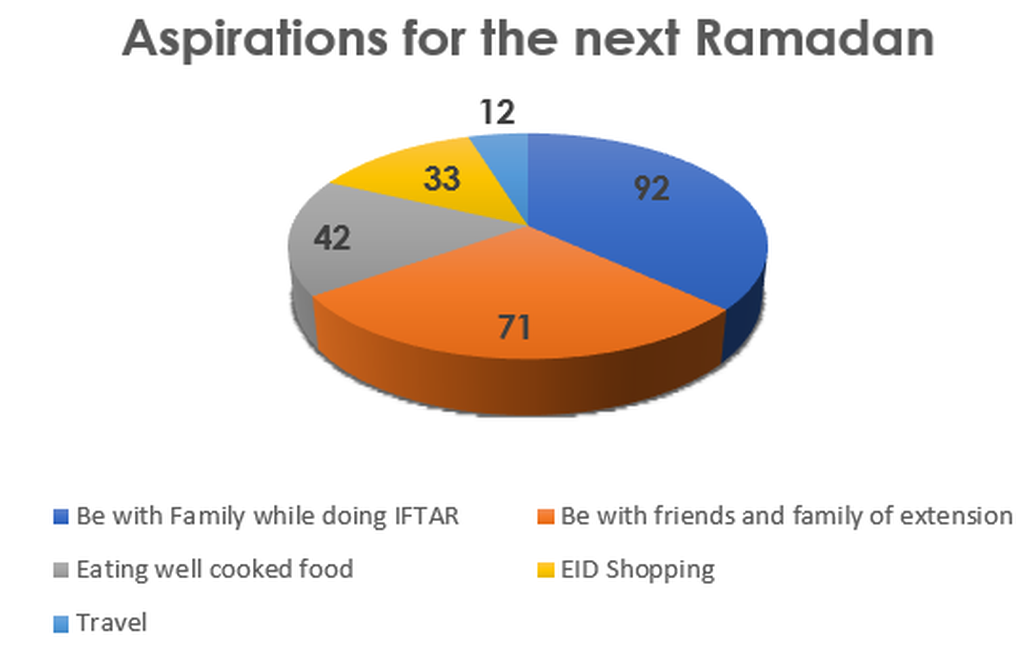
NB: Figures are in percentage.
For the upcoming Ramadan, over 90 percent of the respondents revealed that they are looking forward to being with family while doing IFTAR, while three quarters of them responded that they are going to be friends and their extended family members. It is shown that 42 percent of the respondents will prefer to eat well-cooked food, and at least one-third of them will want to do EID shopping. Only 12% of them intend to travel during the upcoming Ramadan.
Most respondents revealed that they want to be doing the activities that they earlier mentioned, that they are leading spiritual tasks done during Ramadan.
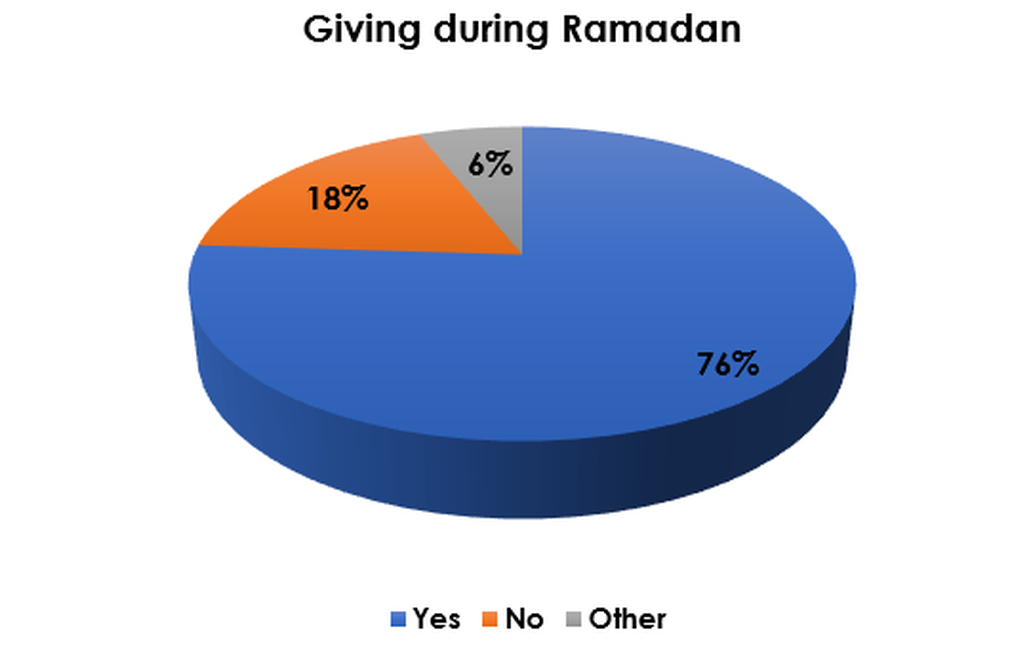
It is believed that when they give contributions, the potential to get people out of poverty is enormously high when they are properly managed. In fact, they are properly managed by the organisations they are supposed to work for, and this is giving them popularity. These contributions made during Ramadan are called Zakat. Thus, it was found that 76 percent of the respondents will make a Zakat contribution in the upcoming Ramadan and 18 percent of them will not.
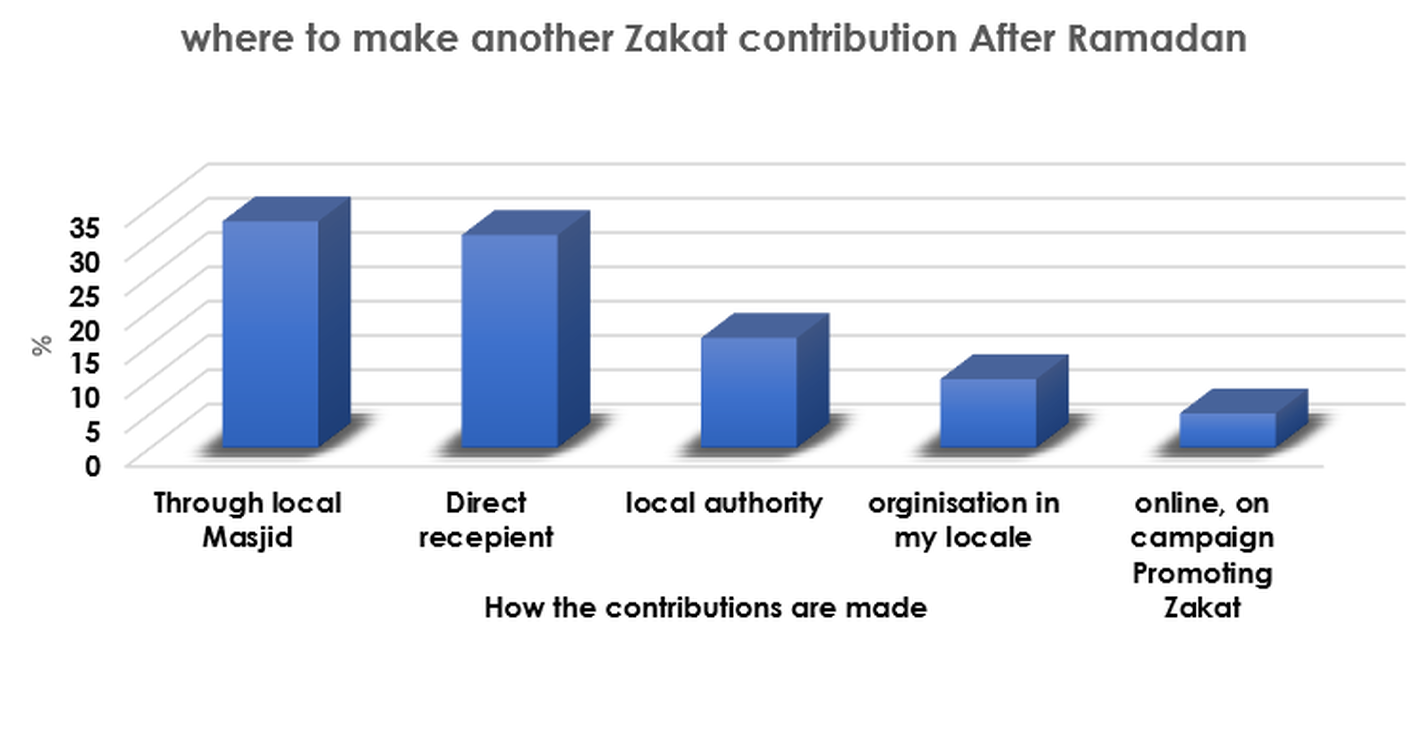
Over one-third of respondents indicated that they would rather put their fellow citizens before anyone else. Thus, they responded that after Ramadan, Zakat is done at their local Masjid. Also, over one-third of the respondents revealed that they paid their post-Ramadan Zakat directly to the recipients concerned. Only 16% of them pay their local governments, and 10% do so through organisations in their communities. The good thing about the former and the latter is that when your local people know the charity they get is from their own people, they develop a sense of unity and Ramadan will be practiced by everyone.
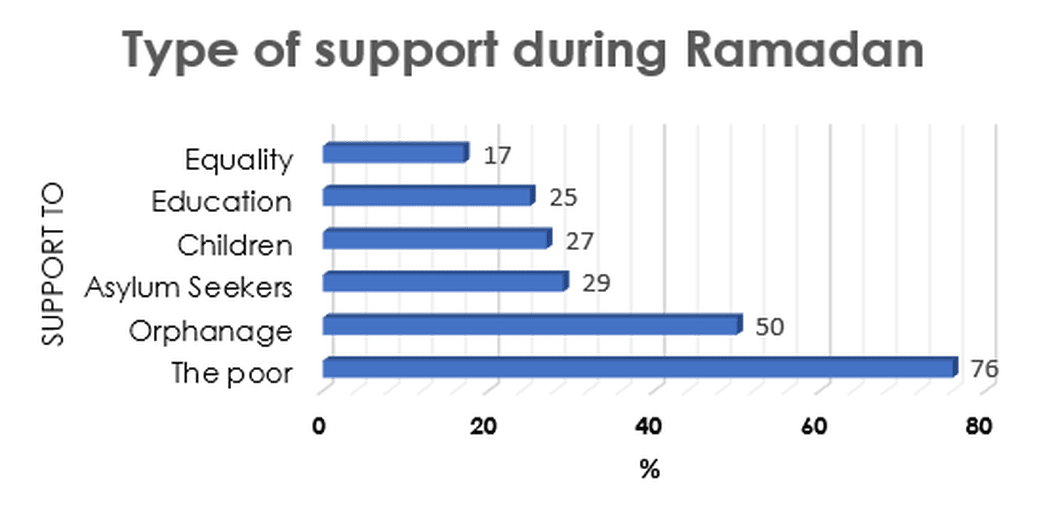
It has been found that respondents are willing to extend support during Ramadan. Over three-quarters of them highlighted that they would support activities that have a focus on the poor, and two-quarters indicated that they would support activities towards orphanage organisations. Asylum seekers are also not forgotten as 29 percent of the participants showed that they will rather contribute to organisations/calls that seek to help asylum seekers, while 27 percent of them indicated that programmes that are of children's objectives will be where they direct their support during Ramadan. The great thing is that they know that reading a Quran may not be possible if one has not acquired an education. Thus, 25 percent of them responded that they would support activities that have educational purposes. Equality is an important thing to participants, as 17 per cent of them revealed that they will support activities that have a focus on equality promotion. This is crucial for women's empowerment.
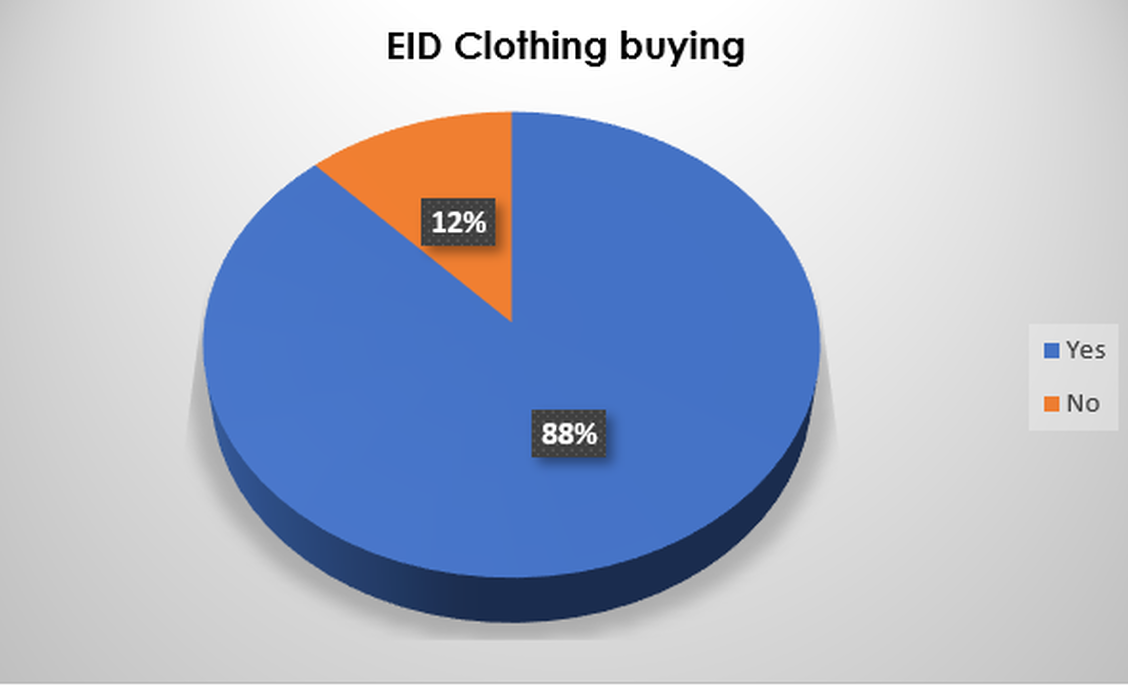
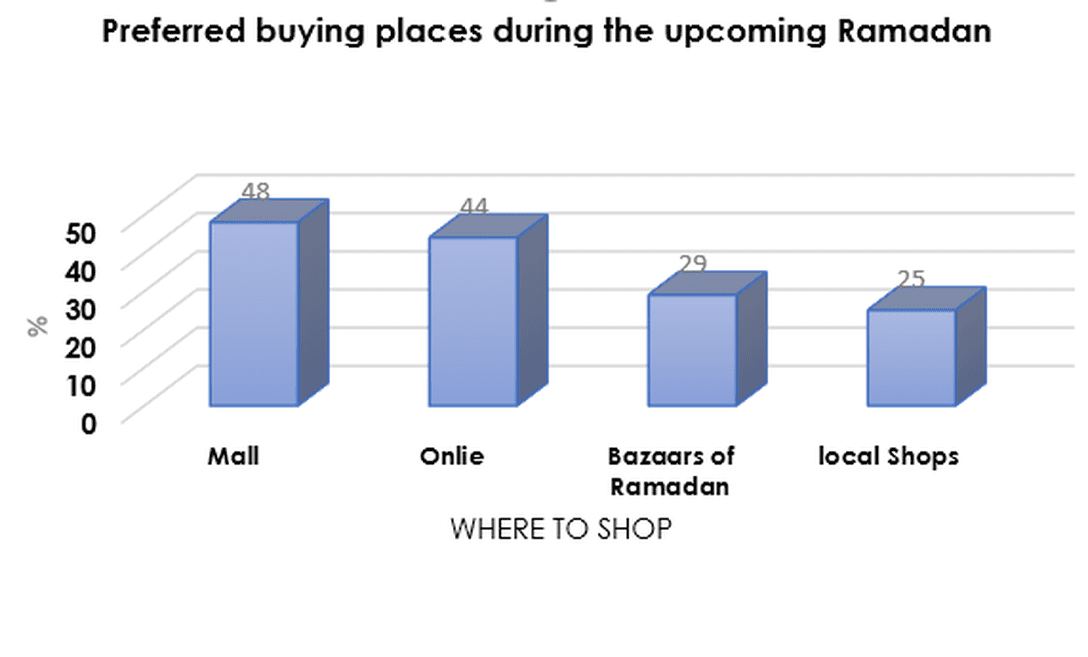
The respondents showed that only 88 percent of them like buying clothes for EID and 12 percent do not. The 88 percent also revealed that 48 percent will shop for EID clothes in malls and 44 percent will shop online. The latter option can be explained by customers having gotten accustomed to buying online since COVID-19, and they would thus feel no need to go to the mall. Further, 29 percent of the participants revealed that they would go buy their EID at Ramadan bazaars and a quarter would go buy at local shops.
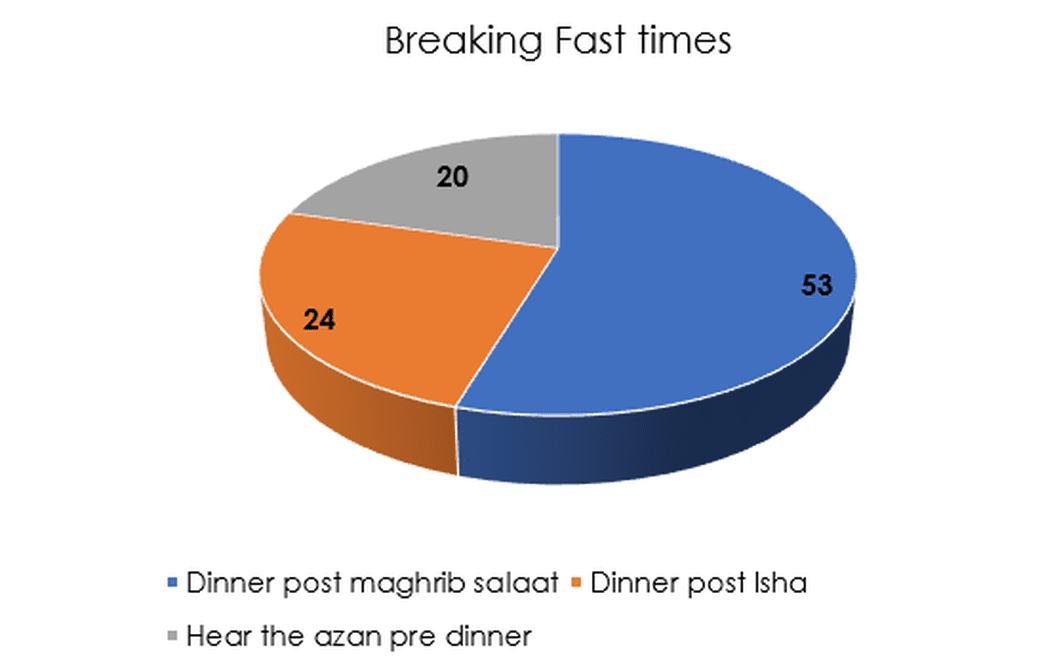
NB: Figures in percentage
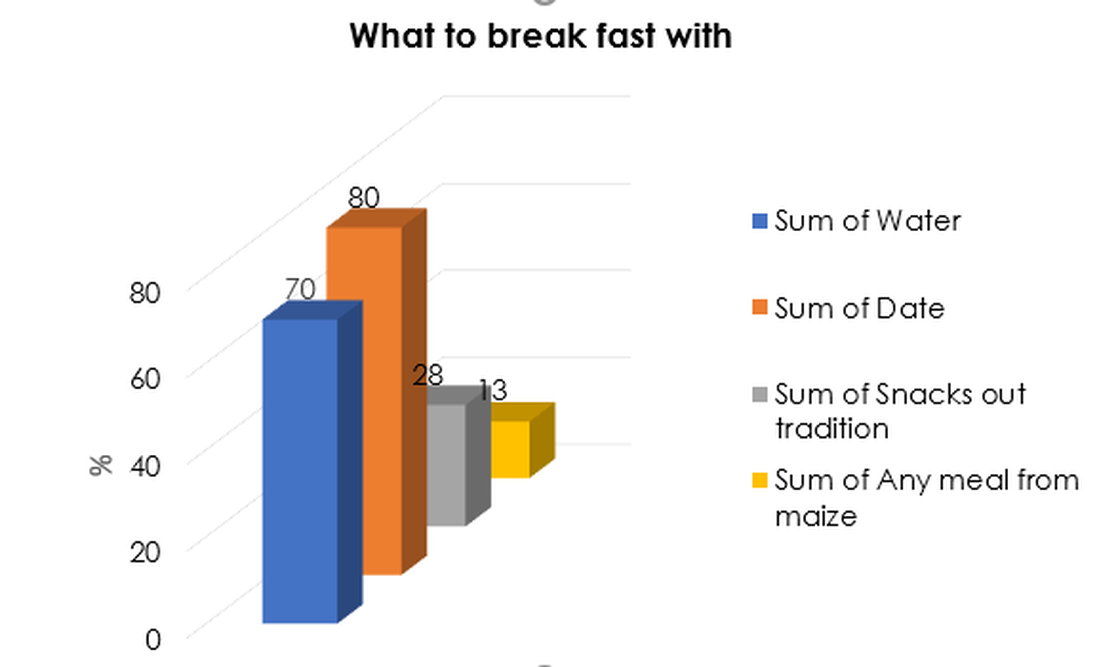
It is reported that over two-quarters of the respondents revealed that they only eat dinner after Maghrib salaat and 20 percent eat dinner post-Isha. However, 24% of them would listen to the azan before dinner. Notably, dates are consumed by 80% of them, while water is consumed by 70%. Further, it was reported that the respondents revealed that almost three-quarters of them home-cooked meat on a daily basis, with 40 percent dining outdoors during Ramadan. Almost three-quarters of home-cooked meals may be as a result of Ramadan not being an appropriate time to eat western-style food.
In this article, the author tries to summarize the Ramadan and Eid Lifestyle Report 2022. Several things highlighted in the report have been analysed and synthesised to inform and direct you in making the right preparations for Ramadan. These include: the respondents’ demographics; the leading spiritual tasks done during the Ramadan season; the respondents’ aspirations for the upcoming Ramadan; what the respondents would be doing that they have forgone during the health pandemic; the level of their willingness to give during the Ramadan month to ensure that the needy are supported; buying outfits for EID and the preferred buying places; the periods for breakfast and what is used; and where to go have a meal during Ramadan.
Download the full report here.